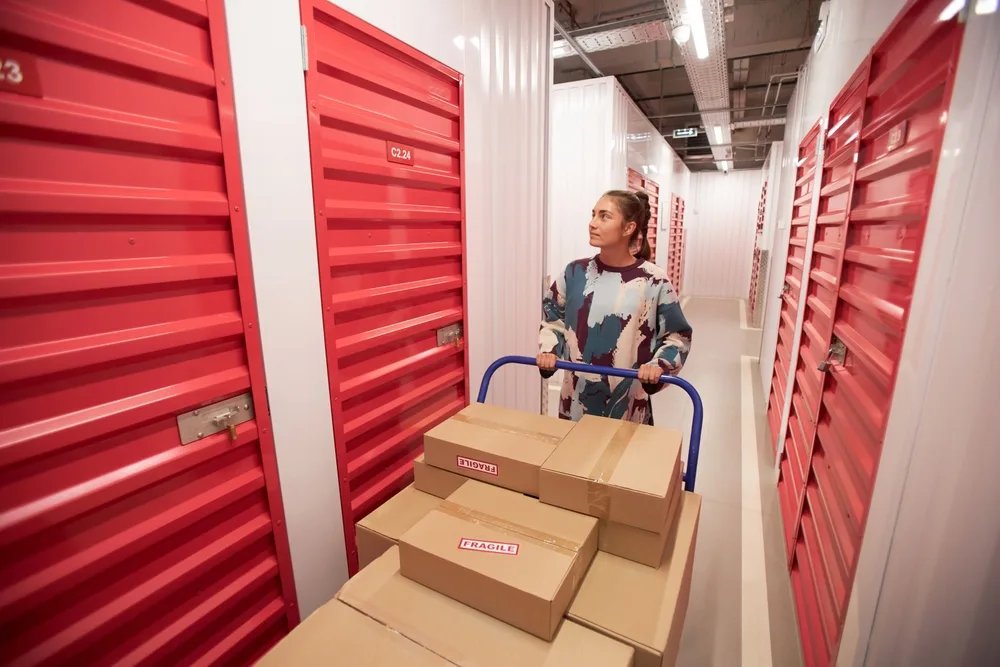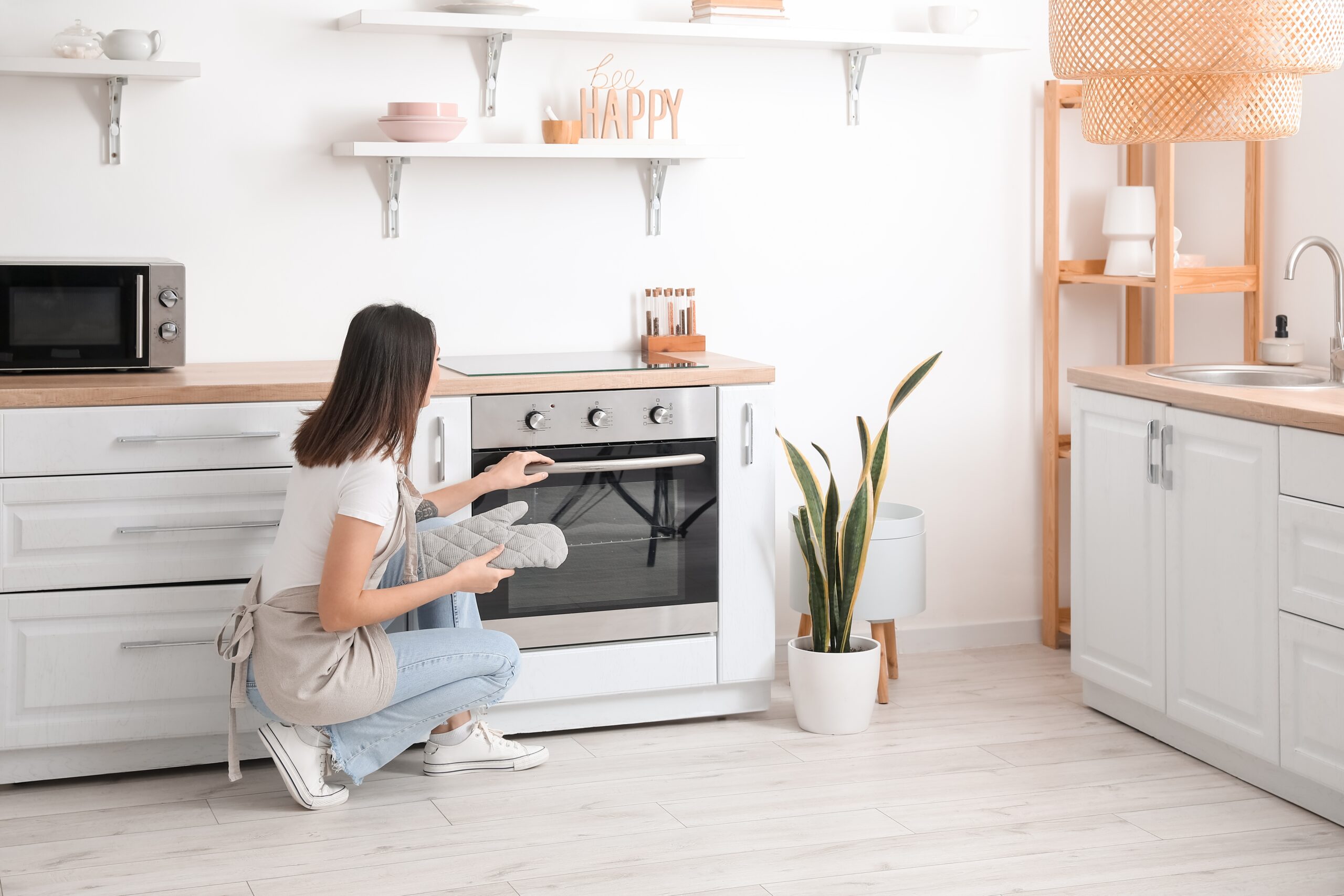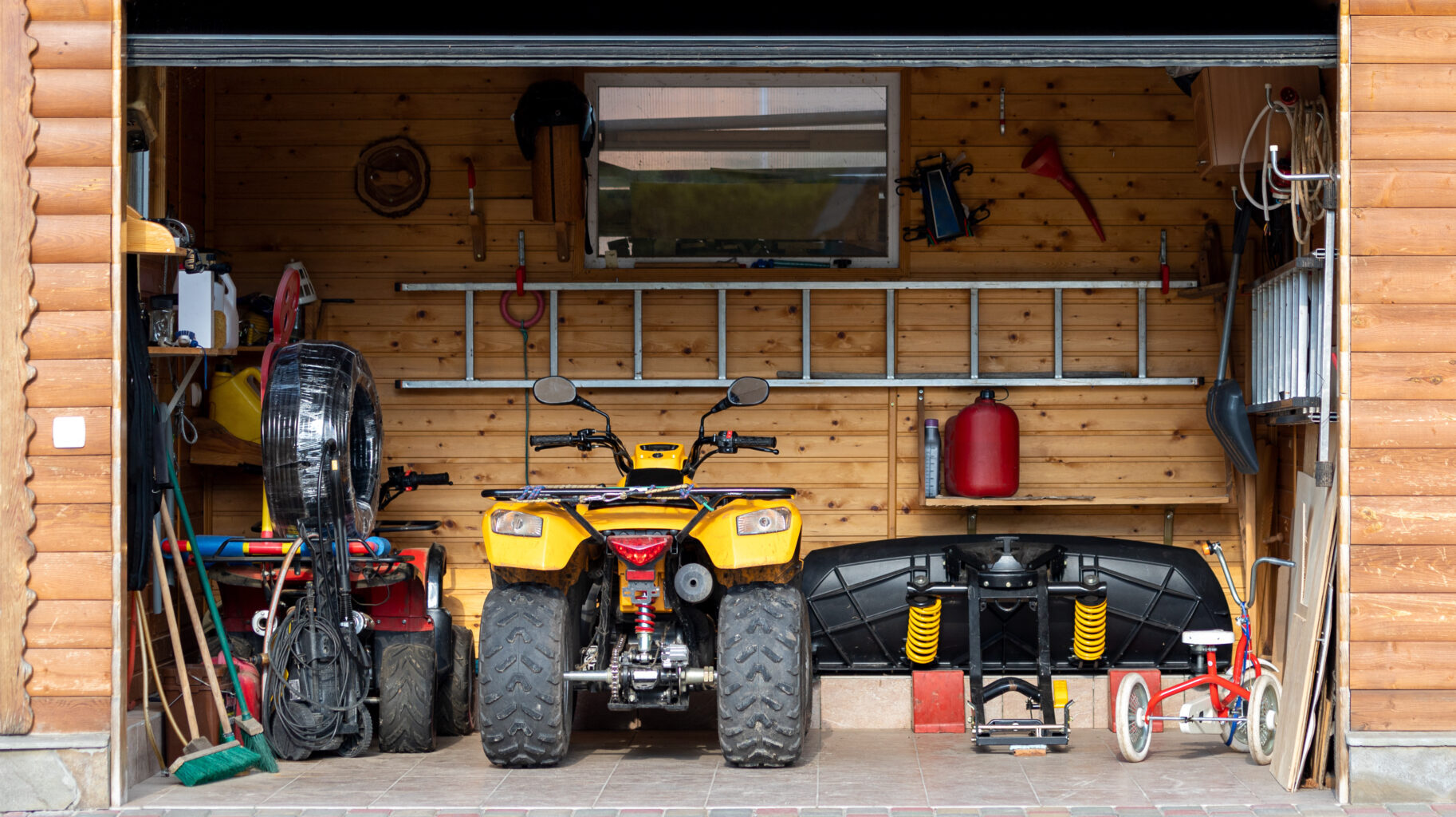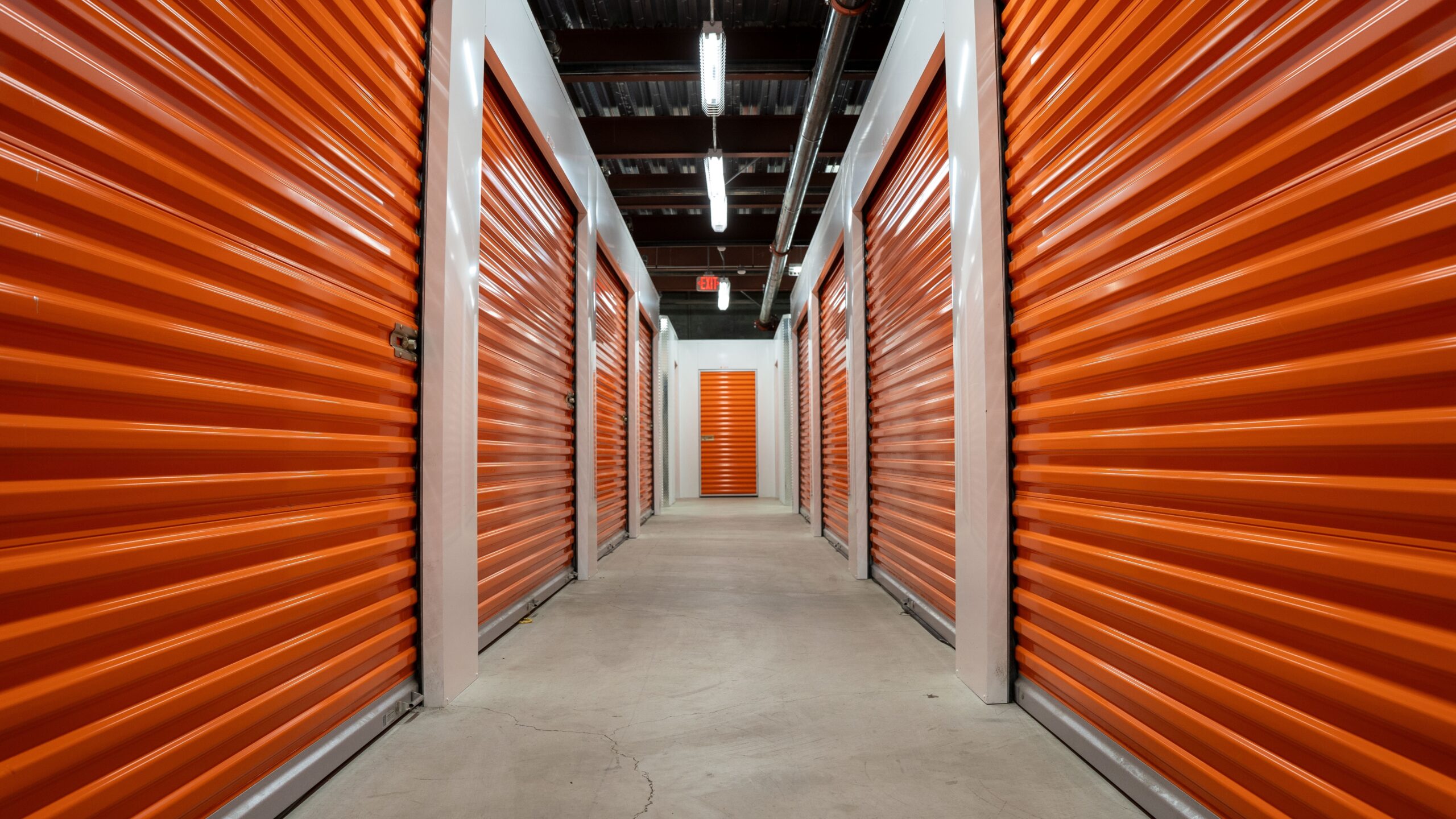Maybe you’re looking to clean out your apartment a bit, are in the relocation process, or expanding a business. Maybe you’re finding a unit you can use to throw some stuff into long-term storage, or maybe you find yourself needing to move out quickly for a particular reason. Either way, there comes a time for many of us when we need to put a stack of common household items into storage on a moment’s notice and are left asking, what can’t I store in a storage unit?
Whenever you’re doing something for the first time or are operating in a hurry, it can be easy to overlook some simple rules or perhaps try to cut some corners. And while the policy of “better to beg for forgiveness than ask permission” is recommended when you find a plate of chocolate chip cookies, that’s not the case for breaking storage company policy.
This quick guide covers what not to store in a storage unit and explains why. Read on for our list of items most storage facilities won’t let you store.
1. Perishable Food Items

The first item on our list of what not to store in a storage unit is food. From fresh produce to dairy products to pet food, perishable food items aren’t allowed in a storage facility, even if it’s in preparation for doomsday.
The primary reason is that, just like scented items and beauty products, food attracts bugs, rodents, and other pests that can not only damage your personal items, but can wreak havoc on the surrounding units as well.
And before you ask, some storage units won’t even let you store canned foods, regardless of their extended shelf lives.
Not only can shelf-stable items still attract pests, but if you’re renting a non-climate-controlled storage unit, extreme temperature fluctuations increase the risk of combustion. And the same goes for aerosol food items like cooking spray.
Now, if you are renting a climate-controlled unit and you plan on storing canned goods, we suggest clearing it with the storage company staff by asking about all their additional storage guidelines before you sign the lease.
2. House Plants, Trees, and Succulents

This one should be a no-brainer, but plants are on the list of what not to put in a storage unit for one simple reason: plants need sunlight and water to grow. And even if you rent a storage unit with electricity, your light source probably isn’t emitting healthy UV rays that plants need.
And much like food, plants count as perishable items. Should these plants die and rot, it can attract unwanted pests, and we already explained why storage facilities will avoid anything that encourages an insect infestation at all costs.
If you’re relocating and need your house or office plants stored somewhere, perhaps ask a friend or family member can “plant-sit” for you during your move. This also applies to pets… or anything living, really.
3. Flammable Liquids, Toxic Materials, and Other Hazardous Items
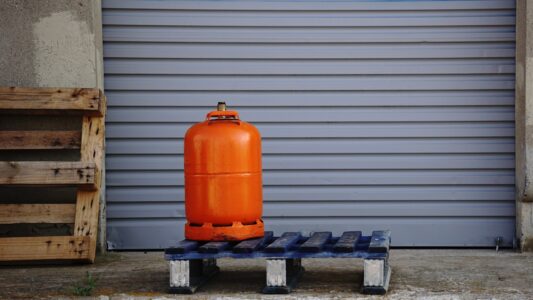
Unless a storage unit is equipped with climate control, it can get pretty hot in the summer. But even climate-controlled self-storage facilities frown upon storing toxic and radioactive materials.
That said, some of the most flammable items are things we keep in our garages or bathrooms without thinking twice about it.
Weed killer, propane tanks, nail polish remover, and aerosol sprays of any kind are not allowed in more than a few storage spaces.
While it may seem like common sense not to store combustible materials, we’ve seen some people convert their storage units into motorcycle garages and, without realizing it, keep hazardous materials like gasoline inside.
If the unit’s internal temperature fluctuations hit an extreme high, you risk an explosion, damaging not just the items in your unit but all neighboring units.
Not to mention that electrical storage units are more and more common these days. It would only take one wire spark for things to literally and figuratively go up in smoke.
Flammable items are strictly and unquestionably forbidden in any storage unit.
Combustible items include: chemicals, aerosols, acid, propane, flammable oils, paint thinners, flammable cleaning products, pesticides, hand sanitizers, liquor, fireworks, and anything else with a giant “Flammable” warning on the label.
4. Beverages and Wet Items
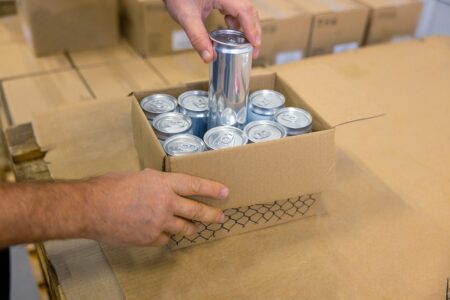
While some storage facilities allow liquids, such as wine, beverages, and wet items, we only suggest doing so if it’s absolutely necessary. And if you do have to, take proper care to prevent mold and mildew growth.
Even if the storage unit allows it, keep in mind that temperature fluctuations in either direction can cause cans of liquid to explode. Liquids can not only damage your valuable items by getting them wet, but uncleaned liquids also cause rapid mold and bacteria growth in your storage unit.
Corrosive liquids can cause a slew of issues, from damage to paper and fabrics to odors that could attract unwanted pests to your storage unit, risking an infestation of the entire storage facility.
5. Dangerous Items like Weapons, Ammunition, and Illegal Items

The first thing to keep in mind is that, legally speaking, your storage unit is viewed as an extension of your house. So if you get caught storing any illegal items, such as drugs that are classified as controlled substances, and any associated paraphernalia – you’re in big trouble.
When it comes to weapons and firearms, any weapon that’s illegal to own in your state is illegal to keep in your storage unit.
As far as legal firearms are concerned, more than a few storage facilities avoid the risk altogether and won’t allow guns and ammo to be stored on premises, either for insurance reasons or simply to avoid the extra safety risk.
That said, there are some self-storage companies that do allow firearm storage and have special vault storage dedicated to protecting firearms. Before you prepare your gun for storage, make sure to check with the facilities in your area to see if you’re allowed to store a gun or if they have special gun storage vaults.
Storing firearms is something you want to clear with management beforehand. And keep in mind that ammunition is considered a combustible material and must be kept in a climate-controlled unit.
How Storage.com Can Help You Find a Storage Unit for Specialty Items
While storage units offer great solutions for decluttering and keeping your excess belongings, they do come with certain boundaries. Just like our homes, these spaces need to be safe, legal, and well-maintained — free from hazards, legally questionable items, and anything that could cause damage or attract unwanted guests.
When it comes to things like hazardous materials, perishable food, or valuable antiques, it’s best to double-check — each facility comes with its own set of rules and policies on what not to put in a storage unit on its premises.
If you decide to convert a storage unit into a motorcycle garage, for example, a 5’×10’ storage unit is generally big enough to house one motorcycle and any accessories you may have, like helmets or jackets, and gives them all the cover they need from the weather.
You’ll also want a climate-controlled storage unit that prevents rust and keeps the motorcycle in optimal condition. This is ideal for areas with fluctuating weather conditions or harsh winters. Security features like video surveillance, gated access, individually alarmed units, and on-site management are a plus.
And if you’re looking for a storage facility to store firearms inside, self-storage security features are an even more significant factor. Remember that thieves are less likely to steal your weapons if they’re stored inside a facility with up-to-date security.
Self-storage facilities with a sliding gate are the preferred barrier method. Unlike a swinging gate, which is hinged and can be pried open, a sliding entrance is constructed as part of a larger, more complicated entity and is therefore more difficult to force open.
If your storage facility has a video surveillance system, that’s even better. The cameras continue to roll even when nobody is around to watch the facility.
But not all storage units are created equal. Some aren’t climate-controlled, and others lack security cameras or 24-hour access.But don’t worry. Storage.com is here to help you find the ideal storage space for your specialty items. Just punch your zip code into our handy storage search tool to find a storage unit near you that suits your needs!
